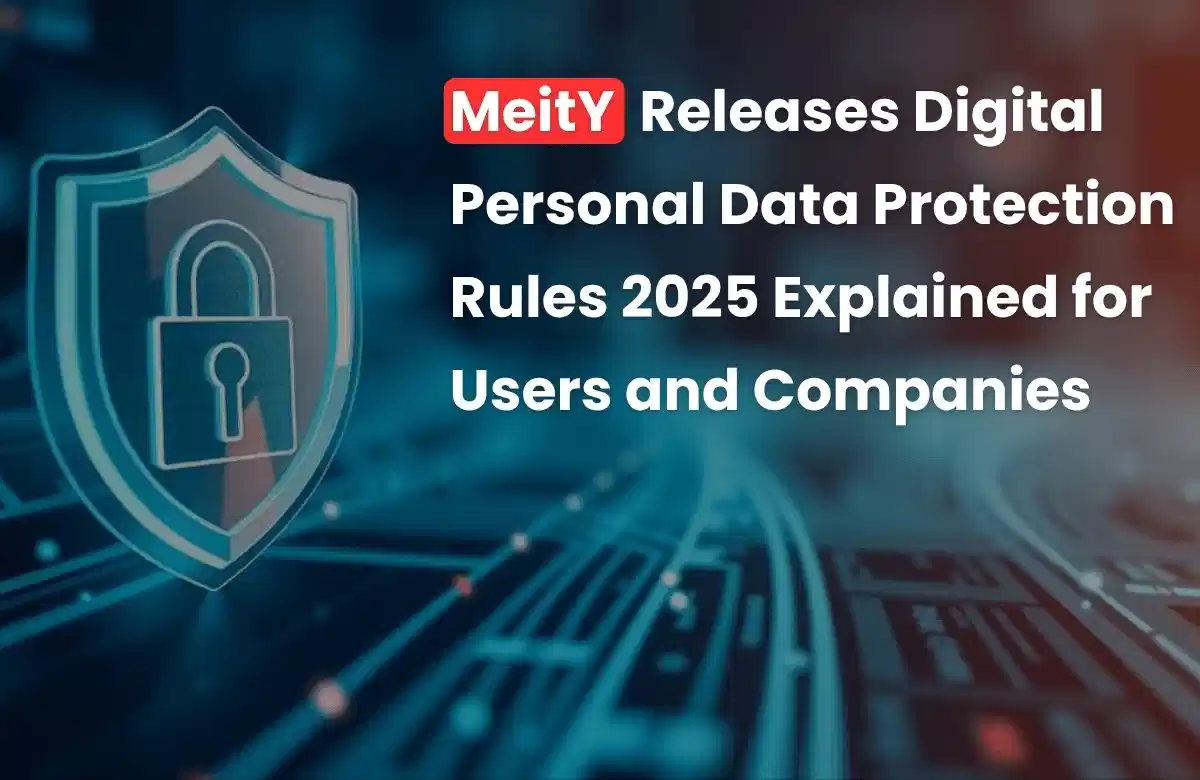
The DPDP Rules are making big headlines across India after MeitY released new guidelines explaining how companies should collect, store, and use people’s personal data. Digital Personal Data Protection Rules 2025. This update has been long overdue, especially for everyday users who want more transparency and better protection online. Along with data privacy, businesses are also focusing on brand security through trademark registration in India, as compliance and trust go hand in hand in the digital ecosystem. The new rules aim to make the digital world safer, clearer, and more accountable for everyone. Keep reading to understand what MeitY announced.
How Do the DPDP Rules 2025 Change the Way Companies Handle Your Data?
Before we talk about what the Digital Personal Data Protection Rules 2025 will change, it’s important to understand what updates they actually bring in. The new rules clearly explain how companies in India must collect and handle people’s personal data, and a lot has changed, such as:
- Now, companies have to openly tell users what data they’re taking, why they need it, how long they’ll keep it, and how users can withdraw their consent whenever they want.
- There are stronger safeguards for children, too, like mandatory parental consent and strict limits on tracking or targeted ads.
- The rules also make it compulsory for companies to quickly report any data breach to both the affected users and the Data Protection Board.
- On top of that, businesses must follow solid security practices such as encryption, access controls, and audit logs, and they’re not allowed to keep personal data longer than necessary.
- Data transfers outside India come with their own conditions, and large companies managing massive amounts of data may be labelled as “Significant Data Fiduciaries,” which means extra audits and tighter compliance.
Overall, these changes push companies to be more transparent and give users far more control over their digital lives.
Read Also: Masimo Wins $634 Million Lawsuit Against Apple Over Pulse Oximeter Patent
What New Changes Should Indians Expect Under the DPDP Rules 2025?

Now, let’s get to the main question — why were these changes needed, and how will they actually impact the everyday life of normal Indians? The DPDP Rules 2025 are bringing some major shifts in how personal data is handled in the country, and they’re all aimed at giving users more power and safety online. And the major changes that are expected to happen in the future are:
- For the first time, people will have real control over their information — they can check what data companies have, correct it, delete it, or withdraw consent whenever they want.
- Companies won’t be able to collect data endlessly or hide things behind confusing privacy policies anymore.
- They’ll have to be upfront, follow stricter security measures, and inform users quickly if there’s a data breach instead of quietly ignoring it.
- Children’s data will get extra patent protection too, meaning apps and platforms must be far more careful while dealing with users under 18.
- These rules also push companies to limit how long they store data and think more carefully before transferring it outside India. For big tech players, this means much tighter compliance, audits, and accountability.
Read Also: Calcutta High Court Invalidates JAYS Trademark After Trademark Dispute with PepsiCo
Conclusion
The DPDP Rules 2025 mark a major step toward a safer and more transparent digital future for India. By giving users more control and making companies more accountable, these rules aim to create an online environment where privacy is respected and protected. As businesses adapt and compliance becomes the new norm, everyday Indians can expect a more secure and trustworthy digital experience moving forward, and to stay updated with more interesting and latest IP news from India and around the world.
